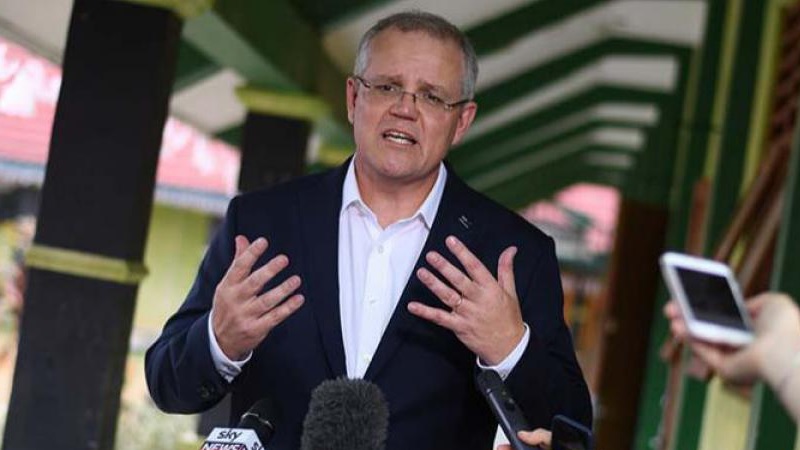Why Australia's new government won't change course on China
September 11 2018

By Elena Collinson
Note: This article appeared in The Diplomat on September 11 2018.
Australia watchers in Southeast Asia could be forgiven for rolling their eyes at yet another change in prime minister in a country that is vocal about its democratic stability. Yet despite the domestic turmoil continuity will likely be maintained in Australian foreign policy, with efforts by the previous government to adjust the temperature in Australia-China relations likely to be preserved, not thrown overboard.
Certainly the new Prime Minister, Scott Morrison, blocked two foreign investment bids, both of which happened to be from Chinese companies, when he was Treasurer. These were the sales of Ausgrid, the New South Wales electricity distributor, and S. Kidman and Co., Australia’s biggest private landholder.
But it might be wise to place this in context. Kidman’s assets comprised a staggering 2.5 percent of Australia’s agricultural land. Most countries would blanch at such a big foreign acquisition. The Chinese investors retreated after a preliminary decision by Morrison and a new bid was made in partnership with serious Australian investors, with the Chinese stake reduced to a third. Morrison signed it off. National security considerations were cited as the barrier to the bid for Ausgrid. It was revealed Ausgrid provides ‘critical support’ to Pine Gap. This is a joint US-Australian communications facility in the centre of the continent which receives data from US satellites. Despite these high-profile rejections, while Morrison was Treasurer China remained the largest source of approved foreign investment by both number and value in Australia.
Morrison had also supported foreign investment over Australian bids where it was deemed in the national interest. In February 2016 he approved the sale of Australia’s largest dairy firm to a Chinese company over two rival Australian bids. In the face of calls for the firm to be placed back into Australian hands, Morrison was resolute, saying that blocking the sale ‘would corrupt and undermine the integrity of all future sales processes’ and mean that ‘no investment tender process could be taken seriously again in this country.’
In short, there is no pattern of antagonism towards Chinese investment from the current Prime Minister. Nor toward China more generally, with Morrison telling a radio station in April that he didn’t think it was ‘helpful to talk down the relationship with China’.
The Prime Minister’s senior ministers displayed a similar pragmatism in their previous portfolios. His Foreign Minister, Marise Payne, as Defence Minister cleaved to a steady line on the South China Sea, criticising China’s assertive actions where necessary but in a measured manner. She supported US freedom of navigation operations while not committing Australia to participating in them. She extended an invitation to the Chinese navy to participate in Australia’s naval war games, maintaining bilateral defence cooperation. While Payne had at the beginning of this year appeared to back a US assessment of China as a greater threat to national security than Islamic terrorism, she immediately clarified her comments, stating unequivocally that Australia ‘certainly [doesn’t] see China as a threat.’
New Defence Minister Christopher Pyne has largely refrained from public commentary on China. But just three months ago he told a gathering of senior China watchers, ‘[W]hen it comes to China, I’m by my nature inclined to see a positive narrative.’
Just before his ouster Malcolm Turnbull gave two set-piece speeches that restored an equilibrium to Australia-China relations. Morrison is likely to hang onto this rapprochement. After all, his government hasn’t the time to recast foreign policy. The Prime Minister’s energies will be needed in tackling energy policy, drought, cost of living issues, and preparing for a fast-upcoming election.
However, a steady hand will be required in navigating the relationship. On August 23, while his colleagues were voting him out of the prime ministership, Turnbull’s ministers announced a decision to limit Huawei’s involvement in Australia’s 5G network. This stung Beijing. Now another decision looms: will the government approve a $13 billion bid by Hong Kong-listed Cheung Kong for APA Group, Australia’s biggest gas pipeline operator? The government might seek to balance the Huawei directive with an approval of this bid. But if they reject it, deft management will be needed to maintain Turnbull’s recent thaw in China relations.
Elena Collinson is Senior Project and Research Officer at the Australia-China Relations Institute at the University of Technology Sydney.

